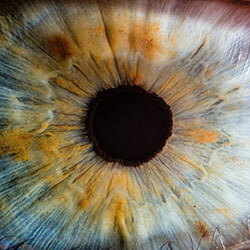Cataracts
While cataracts are most often associated with natural aging, cataracts can develop in anyone, regardless of age. Causes of premature cataracts include injury, disease, radiation exposure, reaction to prescription medications, congenital conditions, eye surgery, and lifestyle choices such as smoking and obesity. Congenital cataracts will likely be treated right away to help prevent vision loss […]
Read
More
Cataracts
The key to preventing vision loss, changes to vision, and the development of eye conditions such as cataracts, begins with regular eye exams. By scheduling your annual exam with CLIENT NAME, testing will evaluate the health of your eyes as well as provide you with treatment options that include prevention of certain eye diseases. While studies […]
Read
More
Eye Health
An optometrist is a physician who specializes in eye and vision care. An optometrist can perform routine eye exams, prescribe eyeglasses, and contact lenses, perform contact lens fittings, diagnose eye health problems, and prescribe and supervise vision therapy. To become an optometrist in the United States, a candidate must earn a 4-year college degree and […]
Read
More
Eye Health
The best prevention for eye issues and diagnosing underlying conditions is to schedule a comprehensive eye exam. An ophthalmologist can assess your eye health and provide you with the best course of treatment to ensure the quality of your vision. Eye tests can determine not just changes to your vision but can detect the effects […]
Read
More
Cataracts
The development of cataracts is a concern for most people as they grow older. Cataracts are very common as, more than half of Americans aged 80 older either have a cataract or have had cataract removal surgery. Oddly enough, primary cataracts are common in those over the age of 60, but secondary cataracts occur more […]
Read
More
Cataracts
Cataracts develop gradually and are classified in four 4 stages. Delaying treatment for cataracts is rarely an option as surgery is almost always inevitable. Left untreated, the greatest risk for not removing a cataract is vision impairment, vision loss, or even blindness. Cataracts are the clouding the lens of the eye. Typically, due to aging, […]
Read
More
Diabetic Retinopathy
Regular eye exams are important if you have diabetes. Diabetes is a health condition that can affect multiple parts of the body including the eyes. Comprehensive eye exams can equip diabetics with important information regarding potential damage to nerves and blood vessels. Diabetes affects the retina. The retina is the light-sensitive layer of tissue located […]
Read
More
Common Eye Conditions
Surgery is a concerning word in many cases but even greater when thinking about a laser or scalpel coming near one of the most delicate organs of the body: the eyes. Most of us would rather avoid eye surgery if at possible. Sometimes, however, surgery is necessary for removal of growths in the eyes that […]
Read
More
Cataracts
One of the disadvantages to having cataracts is the eventual progression of impacted vision. As Because cataracts develop gradually in stages, at some point patients will find it difficult to drive at night, due to both low-light conditions as well as glares or halos around light. Cataracts cause light to be distorted especially at night, […]
Read
More
Cataracts
With any distortion to vision, color perception may also be affected. Cataracts are the clouding of the eye’s natural lens and progress gradually in four4 stages. In each of these stages, not only does the cataract itself change color but in addition to blurred or cloudy vision, can make certain hues look faded or tinted. […]
Read
More














